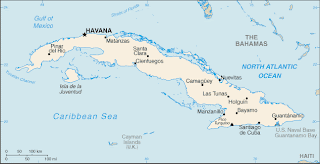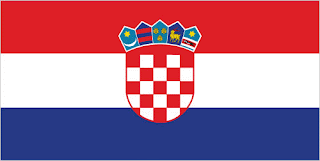Croatia is located in Europe.
The lands that today comprise Croatia were part of the Austro-Hungarian Empire until the close of World War I. In 1918, the Croats, Serbs, and Slovenes formed a kingdom known after 1929 as Yugoslavia. Following World War II, Yugoslavia became a federal independent communist state under the strong hand of Marshal TITO. Although Croatia declared its independence from Yugoslavia in 1991, it took four years of sporadic, but often bitter, fighting before occupying Serb armies were mostly cleared from Croatian lands, along with a majority of Croatia's ethnic Serb population. Under UN supervision, the last Serb-held enclave in eastern Slavonia was returned to Croatia in 1998. The country joined NATO in April 2009 and the EU in July 2013.
CIA World Factbook
With an area of 56,594 sq km, it is slightly smaller than the U.S. state of West Virginia.
Croatia shares a border with Bosnia and Herzegovina, Hungary, Serbia, Montenegro, and Slovenia. It is geographically diverse with flat plains along Hungarian border, low mountains and highlands near Adriatic coastline, and islands.
People who live in Croatia are called Croats or Croatians; Croatian is also an adjective used to describe something from this country. As of July 2013, there are 4,475,611 people in Croatia. The ethnic groups that reside in Croatia are mostly Croat (89.6%) with some Serb (4.5%) and other (5.9%), including Bosniak, Hungarian, Slovene, Czech, and Roma. Croatian (96.1%) is the official language, but Serbian (1%) and other/undesignated (2.9%), including Italian, Hungarian, Czech, Slovak, and German, are spoken there. Roman Catholic make up approximately 87.8% of the population, while Orthodox (4.4%), other Christian (0.4%), and Muslim (1.3%) make up most of the rest.
The country's official name is Republic of Croatia. The capital is Zagreb, and the country is made up of 20 counties. Croatia gained independence from Yugoslavia on June 25, 1991. The constitution can be found
here through
Constitution Finder. The current president is Ivo Josipovic. Information about the leaders of Croatia's government can be found
here. The currency is the kuna (abbreviated HRK), which stands at 5.8503 HRK per USD as of 2012.
All of this information was gathered from the CIA World Factbook. For more information, check out these resources...
Croatian Government Site
Croatia, CIA World Factbook
Background Notes: Croatia, U.S. Department of State
2012 Country Report on Human Rights Practices in Croatia, U.S. Department of State.
You can also check out the Country Studies tab on our Fed Docs libguide
here for more resources on all of the countries.
Sonnet Ireland
Head of Federal Documents, Microforms, & Analog Media
Reference & Instruction Librarian
Liaison Librarian:
Accounting; Economics and Finance;
Hotel, Restaurant, and Tourism;
Law; Management; Marketing





